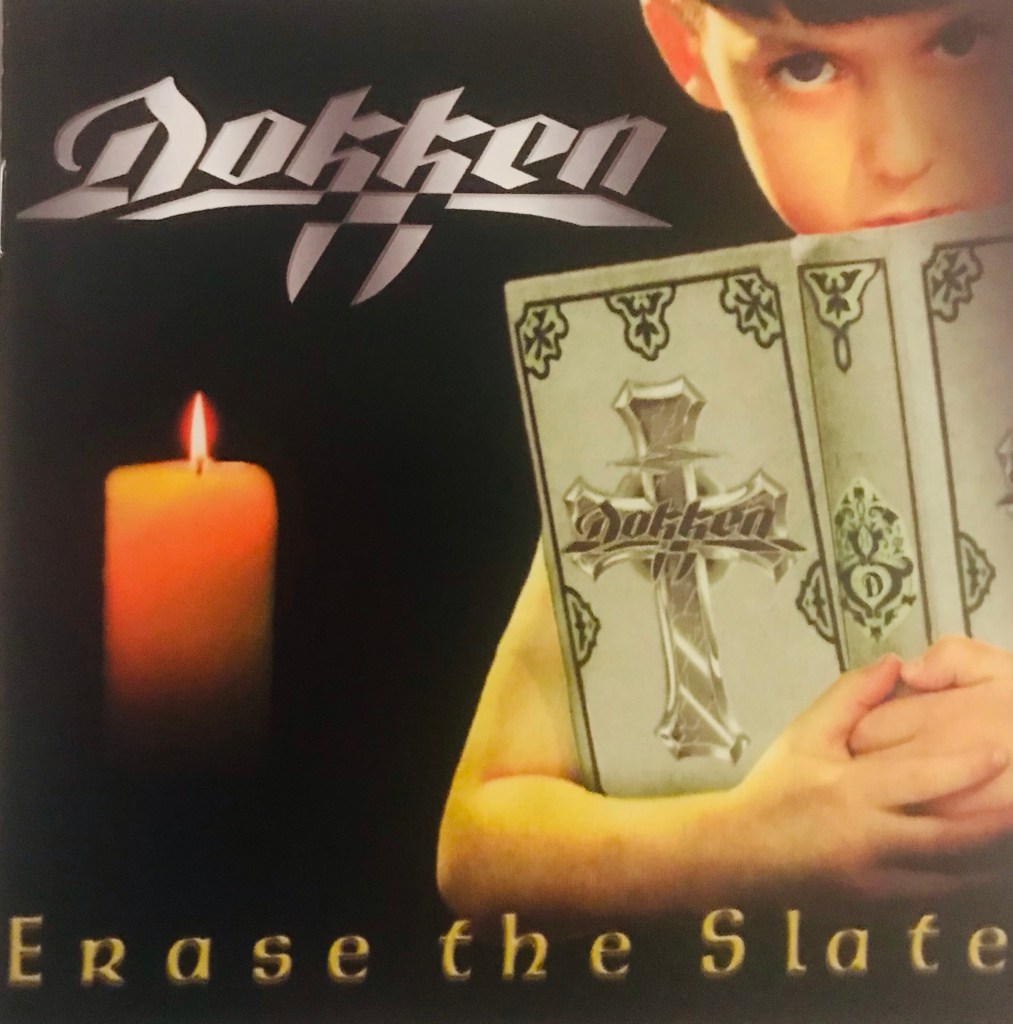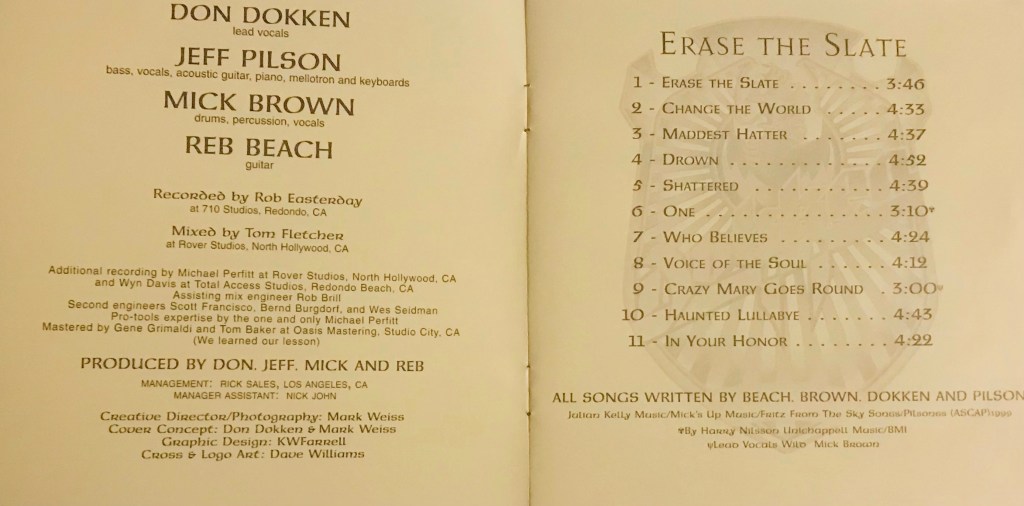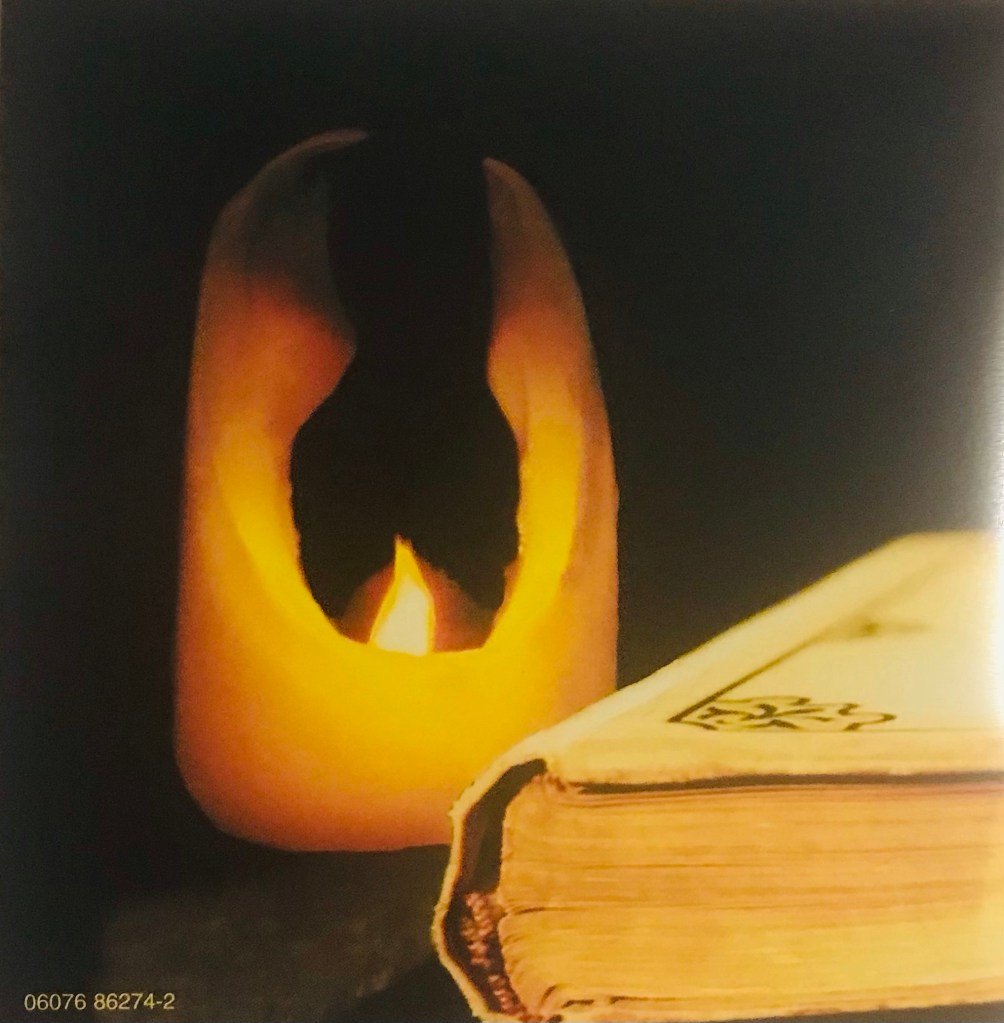One thing about the world of heavy metal and hard rock was that we never took ourselves too seriously. It was always a camaraderie, a culture to have “Nothin But A Good Time”. A culture to “Seek and Destroy” and just have some fun “Smokin In The Boys Room”.
So when Zakk Wylde was playing “In This River” at the Revolver Golden Gods Awards for the fallen rockers and a picture of Jani Lane from Warrant came up, and it stated, Jani Lane, Motorhead, 1964-2011, it was just one of those things we had to laugh about. Of course, a lot people these days take stuff a little bit too seriously and the elite Motorhead fans were outraged that a wussy singer like Jani Lane was associated with their band.
Or what about when the Salem Community Easter Drama titled “Lamb Of God” actually used the Lamb of God logo on their tickets. It made everyone have a laugh. Because this is what metal and rock is all about. A lifestyle of not taking everything too seriously.
Then you have the other side of the metal and rock community, which is the elitism view.
First let’s go back to the beginning. It was all just rock, blues and folk.
Then it started to branch out into hard rock, blues rock, folk, R&B, Surf Rock, Brit Rock.
Then metal/heavy metal came into the picture, along with Southern Rock, Americana Rock, heavy rock, progressive rock and so forth.
Then came Funk, disco and punk rock.
Then came the New Wave Of British Metal and everything was just metal again for a few years. Regardless of how different the style of metal was, the audience always crossed over between genres. Fans of NWOBHM, also supported the LA metal and hard rock scene. Fans of that LA scene also supported pop rock and Americana acts like Kiss, Ted Nugent, Styx, Bruce Springsteen, Journey, Survivor, Reo Speedwagon and others.
It didn’t last for long as the genre that defined a cultural movement splintered into Hard Rock, Glam Rock, Glam Metal, Pop Metal, Power Metal, Thrash Metal, Death Metal, Extreme Metal, Progressive Metal, Black Metal, Metalcore, Groove Metal, Industrial Metal, Nu Metal, EMO, Punk Metal, Gothic Rock, Doom Metal, Djent, Technical Metal. Folk Metal and the list just goes on and on and on.
Within each genre, there is a subset of elitism within it. The type of elitism that sees the hard rock style as not just not hard enough for the heavy metal community. The type of elitism that sees Metalcore and melodic death metal as not evil enough for the “real” death metallers out there. Or the type of elitism that sees progressive metal as just not brutal enough compared to death metal or black metal.
Sort of like an episode I saw on the cartoon show “Metalocalypse” where the new song that the band Deathklok was writing just wasn’t brutal enough according to their singer.
The elitism goes both ways, where elitism in hard rock sees other metal bands as not melodic enough.
In some occasions it is simply down to taste. People enjoy the pop structure of the “verse – chorus” sing a long, every day, all year round.
The way I see it, people either praise someone else’s success, or they try to tear it down because they believe they should have been there and that someone stole their ride.
People attach themselves to this cancer within them that says “If this band made it, they suck” because they don’t want to admit that they wish it was them on that throne. They don’t want to admit that they are undeserving because they are not qualified or talented enough or good enough.
From the people that I know, and doing some crude math, eighty percent of wannabe musicians drop out when the going gets tough. The remaining twenty percenters keep at it, networking, planning, practicing, creating and moving on. Then from those twenty percenters, another eighty percent drop out due to starting or having families, which means that they have obligations and the need to have a stable income. So let’s say 100 start off. After the first cut, 20 will remain. After the second cut, only 4 will remain.
See no one tells you that when you reach a certain age, the power players in music don’t really want you. That is why the focus is on the young. It’s like McDonalds. Get em young and work em hard for less money.
Making it is hard work. It involves a lot of variables and the main one is luck. Very few make it and a lot of others have excuses for failing.
Sort of like the people who always scream to anyone who cares about how Spotify is killing the music business and pointing to pay out figures without giving the full picture as to how much the label took, how much the manager took, how much the publishers took, how much the lawyers took and how much went to the slush account for expenses.
Seen what Jared Leto said recently.
“We all know that, as content creators, artists and musicians, a great deal of our work is going to be streamed, but the issue is that artists are getting the short end of the stick. The streaming companies are paying record labels, but record labels are not paying artists.”
I have been saying this for a long time in other posts that the greed of the record labels is putting a stain on the streaming model.
“Record companies are taking giant advantages, they’re taking pieces of stock options or technology companies in exchange for guaranteeing rights to artists’ streams, there’s all kinds of deals being made, and artists aren’t a part of those deals.”
This is a biggie. Spotify needed to give over half of the company to the Major Record Labels so that they could operate in the U.S. What did the Major Record Labels use as their bargaining chip in these negotiations?
Yep, you guessed it, the right to access the music of artists past and present. And as Leto alluded too, artists are excluded from these conversations and negotiations.
Spotify is a great enabler of getting music out to the masses. It’s also set to overtake iTunes in Europe due to the closing of a digital tax law loophole in the UK – that put an end to all song downloads being priced at £0.99 ($1.79AUD). This in turn is means that iTunes is expected to lose consumers opting for subscription streaming services instead of paying for each track as a download.
In relation to the heavy metal and hard rock communities, they are not doing a really good job at promoting Spotify by still relying on album sales as a measure of success. Streaming is a tried and true business model. Hell, the whole free to air TV industry is the same model as the free streaming option. And the TV stations made a monza. In 2014, there is no fundamental reason why music needs a “sales” business model.
And while popular culture artists are raking in 100 million plus streams a song, metal and rock bands are still going the mp3/CD sale route. It is the wrong way. There should be no reason why a metal act should not have a song that has surpassed 100 million streams on Spotify by now. No reason whatsoever.
It’s the selling (instant money in the pocket right now) mentality versus the streaming (money in the pocket later) mentality and everyone wants to be paid right now. From the labels, managers, lawyers and producers, down to the individual band members. Everyone wants money to live on and get by.
But music is a risk game. Music was never an industry that guaranteed an income.
So why are bands pushing that argument.
Guitar World ran an article back in April 1997, about where are the Eighties Guitar Heroes now. Now meant 1997 for the article. One of the questions they asked each guitarist was their FINANCIAL STATUS. This is what they had to say;
WARREN DeMARTINI (RATT) – “It’s not like I never have to work again, but I had the luxury of not doing anything right away and I really enjoyed the break.”
“Out Of The Cellar” sold over 3 million copies in the U.S. “Invasion Of Your Privacy” sold over 2 million copies in the U.S. “Dancing Undercover” sold 1 million copies in the U.S. “Reach For The Sky” sold over 1 million copies in the U.S. “Detonator” sold over 500,000 copies in the U.S.
In total Ratt sold over 7.5 million records in the U.S. Using the average retail price of $10, you can do the math on the gross sales of Ratt’s music.
And that break that DeMartini took was roughly 12 months. After that he was a touring guitarist for Whitesnake in 1994, releasing instrumental albums in 1995 and 1996 and new Ratt albums in 1997 and 1999.
In other words even though he was the main songwriter in a band that grossed $75 million in album sales in the U.S alone, he still had to work his arse off.
REB BEACH (WINGER) – “I’m certainly not set financially. I still have to work. I didn’t sign the best contract. Back then, it was ‘Sign this, or we’ll get another guitar player.”
ERIK TURNER (WARRANT) – “We made millions and we spent millions. Now we’re like everyone else: we work for a living.”
BLACKIE LAWLESS (WASP) – “Slow and steady wins the race. We’re a lot better off that a lot of bands that sold a lot more records at one point because we have a cult following. We have the most devoted fans in the world. I’ve never seen anything like it.”
STEVE BROWN (TRIXTER) – “We came out of the whole thing in decent shape. We all have to work, but we don’t have any day jobs and I have a nice house.”
TRACII GUNS (L.A. GUNS) – “I’m by no means set. But I’ve established myself where people buy my records and come out to see us live.”
There is a lot of money in the music business and the ones that create it are the least underpaid.



